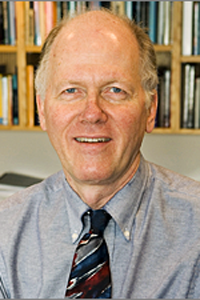Sponsored by the UCLA Brain Mapping Center Faculty
The focus of these talks is on advancing the use of brain mapping methods in neuroscience with an emphasis on contemporary issues of neuroplasticity, neurodevelopment, and biomarker development in neuropsychiatric disease.
Hosted By: Roger P. Woods, M.D., Neurology, UCLA
 |
David C. Van Essen, Ph.D. Professor, Department of Anatomy and Neurobiology Washington University School of Medicine |
Recent advances in non-invasive neuroimaging enable the systematic exploration of human brain circuits in health and disease. The Human Connectome Project (HCP) “WU-Minn” consortium (centered at Washington University, University of Minnesota, and Oxford University) is systematically characterizing brain circuitry, its variability, and its relation to behavior in a population of 1,200 healthy adults (twins and their non-twin siblings). This talk will review progress by the HCP consortium in acquiring, analyzing, and freely sharing these massive and highly informative datasets. The HCP obtains information about structural and functional connectivity using diffusion MRI and resting-state fMRI, respectively. Additional modalities include task-evoked fMRI and MEG, plus extensive behavioral testing and genotyping. Each of these methods is powerful, yet faces significant technical limitations that are important to characterize and be mindful of when interpreting neuroimaging data. Comparisons with anatomical data obtained in non-human primates aid in evaluating different imaging methods and also yield insights regarding the evolution of human cerebral cortex. Advanced visualization and analysis methods developed by the HCP enable characterization of brain circuits in individuals and group averages at high spatial resolution and at the level of functionally distinct brain parcels. Comparisons across subjects are beginning to reveal aspects of brain circuitry that are related to particular behavioral capacities and which are heritable or related to specific genetic variants. Data from the HCP is being made freely available to the neuroscience community via a user-friendly informatics platform. Altogether, the HCP is providing invaluable information about the healthy human brain and its variability. It will set the stage for characterizing brain circuits during healthy development and in abnormal brain connectivity in many brain disorders and diseases.